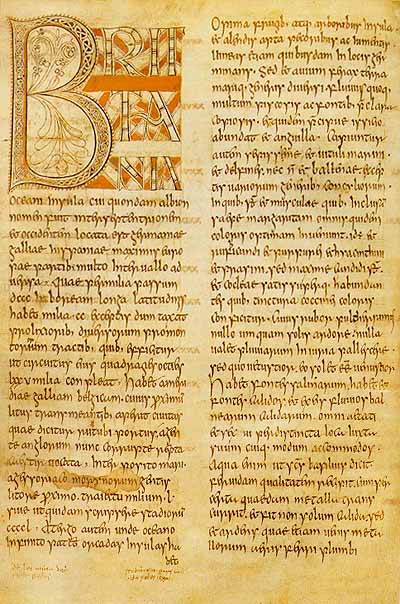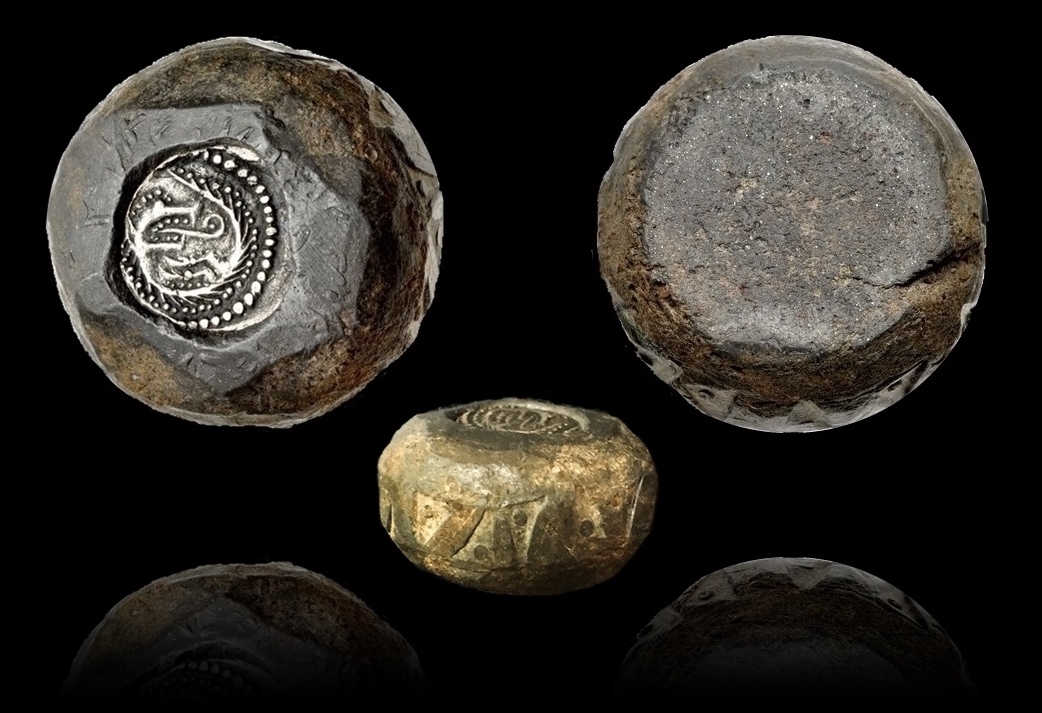|
Berthun
Berthun (died c. 685) was a '' dux'' of the South Saxons. Bede's ''Historia ecclesiastica gentis Anglorum The ''Ecclesiastical History of the English People'' (), written by Bede in about AD 731, is a history of the Christian Churches in England, and of England generally; its main focus is on the growth of Christianity. It was composed in Latin, and ...'' (book IV, chapter 15) records the invasion of the South Saxon kingdom by Caedwalla of the West Saxons and the killing of the South Saxon king Æthelwalh. Caedwalla was driven off by Berthun and Andhun of Sussex, who then jointly ruled the South Saxons. However, Bede reports, Beorhthun was later killed and the South Saxons conquered by Caedwalla. ''The Kings & Queens of Britain'' also states Caedwalla was driven off by Berthun and Andhun, but returned and recaptured the kingdom, killing Berthun c. 685. References External links * Anglo-Saxon warriors South Saxon monarchs 680s deaths 7th-century dukes in Euro ... [...More Info...] [...Related Items...] OR: [Wikipedia] [Google] [Baidu] |
Andhun Of Sussex
Andhun was an Ealdorman of Sussex under King Æðelwealh, who was slain by the Wessex prince Cædwalla, who invaded and ravaged Sussex. Berhthun and Andhun succeeded in driving Caedwalla from the Kingdom. In 686, the South Saxons attacked Hlothhere, King of Kent, in support of his nephew Eadric Eadric, alternatively spelled Edric or Edrick, is a name of Anglo-Saxon or Jute origin and may refer to: * Eadric of Kent (died c. 686), king of Kent from 685 to 686 * Eadric Streona (died 1017), ealdorman of Mercia under Æthelred II and Cnut * E ..., but soon after Berhthun was killed and the kingdom subjugated for a time by Caedwalla, who had now become King of Wessex. References External links * Anglo-Saxon ealdormen Anglo-Saxon warriors 7th-century monarchs in Europe 7th-century English people Year of birth unknown Year of death unknown Date of death unknown {{UK-royal-stub ... [...More Info...] [...Related Items...] OR: [Wikipedia] [Google] [Baidu] |
South Saxons
The Kingdom of the South Saxons, today referred to as the Kingdom of Sussex (; from , in turn from or , meaning "(land or people of/Kingdom of) the South Saxons"), was one of the seven traditional kingdoms of the Heptarchy of Anglo-Saxon England. On the south coast of the island of Great Britain, it was originally a sixth-century Saxon colony and later an independent kingdom. The kingdom remains one of the least known of the Anglo-Saxon polities, with no surviving king-list, several local rulers and less centralisation than other Anglo-Saxon kingdoms. The South Saxons were ruled by the kings of Sussex until the country was annexed by Wessex, probably in 827, in the aftermath of the Battle of Ellendun. In 860 Sussex was ruled by the kings of Wessex, and by 927 all remaining Anglo-Saxon kingdoms were ruled by them as part of the new kingdom of England. The foundation legend of the kingdom of Sussex is that in 477 Ælle and his three sons arrived in three ships, conquering wha ... [...More Info...] [...Related Items...] OR: [Wikipedia] [Google] [Baidu] |
Bede
Bede (; ; 672/326 May 735), also known as Saint Bede, Bede of Jarrow, the Venerable Bede, and Bede the Venerable (), was an English monk, author and scholar. He was one of the most known writers during the Early Middle Ages, and his most famous work, '' Ecclesiastical History of the English People'', gained him the title "The Father of English History". He served at the monastery of St Peter and its companion monastery of St Paul in the Kingdom of Northumbria of the Angles. Born on lands belonging to the twin monastery of Monkwearmouth–Jarrow in present-day Tyne and Wear, England, Bede was sent to Monkwearmouth at the age of seven and later joined Abbot Ceolfrith at Jarrow. Both of them survived a plague that struck in 686 and killed the majority of the population there. While Bede spent most of his life in the monastery, he travelled to several abbeys and monasteries across the British Isles, even visiting the archbishop of York and King Ceolwulf of Northumbria. ... [...More Info...] [...Related Items...] OR: [Wikipedia] [Google] [Baidu] |
Historia Ecclesiastica Gentis Anglorum
The ''Ecclesiastical History of the English People'' (), written by Bede in about AD 731, is a history of the Christian Churches in England, and of England generally; its main focus is on the growth of Christianity. It was composed in Latin, and is believed to have been completed in 731 when Bede was approximately 59 years old. It is considered one of the most important original references on Anglo-Saxon history, and according to some scholars has played a key role in the development of an English national identity. Overview The , or ''An Ecclesiastical History of the English People'', is Bede's best-known work, completed in about 731. The first of the five books begins with some geographical background and then sketches the history of England, beginning with Julius Caesar's invasion in 55 BC. A brief account of Christianity in Roman Britain, including the martyrdom of St Alban, is followed by the story of Augustine of Canterbury, Augustine's mission to England in 597, which brou ... [...More Info...] [...Related Items...] OR: [Wikipedia] [Google] [Baidu] |
West Saxons
The Kingdom of the West Saxons, also known as the Kingdom of Wessex, was an Anglo-Saxon kingdom in the south of Great Britain, from around 519 until Alfred the Great declared himself as King of the Anglo-Saxons in 886. The Anglo-Saxons believed that Wessex was founded by Cerdic and Cynric of the Gewisse, though this is considered by some to be a legend. The two main sources for the history of Wessex are the West Saxon Genealogical Regnal List and the ''Anglo-Saxon Chronicle'' (the latter of which drew on and adapted an early version of the List), which sometimes conflict. Wessex became a Christian kingdom after Cenwalh () was baptised and was expanded under his rule. Cædwalla later conquered Sussex, Kent and the Isle of Wight. His successor, Ine (), issued one of the oldest surviving English law codes and established a second West Saxon bishopric. The throne subsequently passed to a series of kings with unknown genealogies. During the 8th century, as the hegemony of M ... [...More Info...] [...Related Items...] OR: [Wikipedia] [Google] [Baidu] |
Anglo-Saxon Warriors
The Anglo-Saxons, in some contexts simply called Saxons or the English, were a cultural group who spoke Old English and inhabited much of what is now England and south-eastern Scotland in the Early Middle Ages. They traced their origins to Germanic settlers who became one of the most important cultural groups in Britain by the 5th century. The Anglo-Saxon period in Britain is considered to have started by about 450 and ended in 1066, with the Norman Conquest. Although the details of their early settlement and political development are not clear, by the 8th century an Anglo-Saxon cultural identity which was generally called had developed out of the interaction of these settlers with the existing Romano-British culture. By 1066, most of the people of what is now England spoke Old English, and were considered English. Viking and Norman invasions changed the politics and culture of England significantly, but the overarching Anglo-Saxon identity evolved and remained dominant even ... [...More Info...] [...Related Items...] OR: [Wikipedia] [Google] [Baidu] |
South Saxon Monarchs
South is one of the cardinal directions or compass points. The direction is the opposite of north and is perpendicular to both west and east. Etymology The word ''south'' comes from Old English ''sūþ'', from earlier Proto-Germanic ''*sunþaz'' ("south"), possibly related to the same Proto-Indo-European root that the word ''sun'' derived from. Some languages describe south in the same way, from the fact that it is the direction of the sun at noon (in the Northern Hemisphere), like Latin meridies 'noon, south' (from medius 'middle' + dies 'day', ), while others describe south as the right-hand side of the rising sun, like Biblical Hebrew תֵּימָן teiman 'south' from יָמִין yamin 'right', Aramaic תַּימנַא taymna from יָמִין yamin 'right' and Syriac ܬܰܝܡܢܳܐ taymna from ܝܰܡܝܺܢܳܐ yamina (hence the name of Yemen, the land to the south/right of the Levant). South is sometimes abbreviated as S. Navigation By convention, the ''bottom or down-f ... [...More Info...] [...Related Items...] OR: [Wikipedia] [Google] [Baidu] |
680s Deaths
68 may refer to: * 68 (number) * one of the years 68 BC, AD 68, 1968, 2068 * 68 Publishers, a Czech-Canadian publishing firm * '68 (band), an American rock band * ''68'' (album), a 2013 album by Robert Wyatt * '68 (comic book) a comic book series from Image Comics * ''68'' (film), a 1988 American film * 68 Leto, a main-belt asteroid See also *List of highways numbered 68 The following highways are numbered 68: Australia * Channel Highway (Tasmania) * NSW (Multiple routes) Canada * Alberta Highway 68 * Manitoba Highway 68 * Ontario Highway 68 Chile *Chile Route 68 Greece * Greek National Road 68, EO68 road ... * 1968 (other) {{Numberdis ... [...More Info...] [...Related Items...] OR: [Wikipedia] [Google] [Baidu] |
7th-century Dukes In Europe
The 7th century is the period from 601 through 700 in accordance with the Julian calendar in the Christian Era. The spread of Islam and the Early Muslim conquests, Muslim conquests began with the unification of Arabia by the Islamic prophet Muhammad starting in 622. After Muhammad's death in 632, Islam expanded beyond the Arabian Peninsula under the Rashidun Caliphate (632–661) and the Umayyad Caliphate (661–750). The Muslim conquest of Persia in the 7th century led to the downfall of the Sasanian Empire. Also conquered during the 7th century were Muslim conquest of Syria, Syria, Palestine (region), Palestine, Muslim conquest of Armenia, Armenia, Muslim conquest of Egypt, Egypt, and Muslim conquest of the Maghreb, North Africa. The Byzantine Empire suffered setbacks during the rapid expansion of the Caliphate and a mass incursion of Slavs in the Balkans which reduced its territorial limits. The decisive victory at the Siege of Constantinople (674–678), Siege of Constantin ... [...More Info...] [...Related Items...] OR: [Wikipedia] [Google] [Baidu] |




